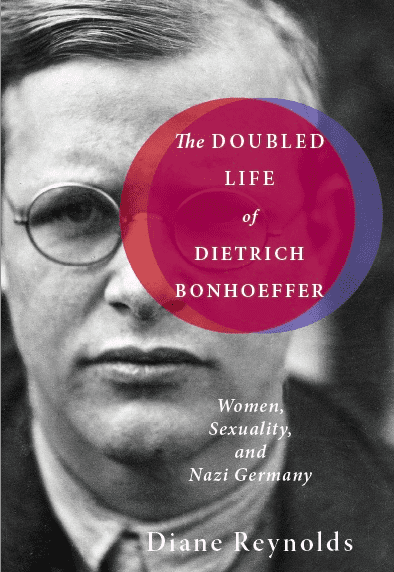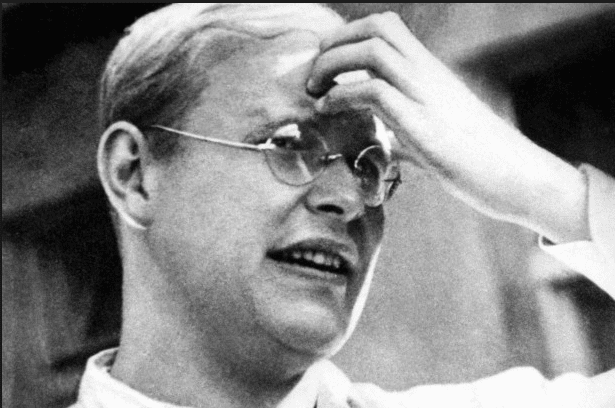 This post is by Jonathan Storment.
This post is by Jonathan Storment.
“Love in Practice is a harsh and dreadful thing compared to love in dreams.” – Dostoevsky
Martin Luther King Jr. Day is this coming Monday, and around this time of year I like to read “Letter from a Birmingham Jail” and ask myself questions like, “Am I spending time with people who are only like me? Does the Church I serve look just like me? Am I living the dream? Or just loving it?”
The story of the civil rights movement in the 1960′s has captured my imagination from the time I was a kid. I have been drawn to the kind of ministry and churches that are working to create more peace in the church and in the world.
I’ve read and heard a lot of Dr. King’s sermons.
I love the dream.
But loving the dream is much different than actually being loving.
So how do you see this tension playing out in our churches today? Does our Church’s vision hurt life together, or help it?
Lately I’ve added another book to this ritual. It’s written by another Christian martyr, Life Together by Detriech Bonhoeffer.
Over the past decade there has been endless talk about the necessity for churches to have vision. It has become the new buzz word. Now I work at a church with a “Vision” and it has proven to be really helpful for pastoring and leading people, but there is a dark side to it as well.
Bonhoeffer criticized the idolatry that can come from “wishful dreaming” and I am starting to understand what he means.
I am really good at loving people…in theory. I know how to look empathetic, how to mimic body language and at least look like I am paying attention.
In fact, the only problem for me when it comes to loving people, is the actual people.
Just a few months before he was assassinated, Martin Luther King Jr. preached a sermon at Atlanta’s Ebenezer Baptist Church:
If any of you are around when I have to meet my day, I don’t want a long funeral. And if you get somebody to deliver the eulogy, tell them not to talk too long…Tell them not to mention that I have a Nobel Peace Prize; that isn’t important. Tell them not to mention that I have three or four hundred other awards; that’s not important. Tell them not to mention where I went to school. I’d like somebody to mention that day that Martin Luther King Jr. tried to love somebody.
I love that Dr. King said don’t tell everyone about my Nobel Prize, or the hundreds of other awards I’ve received. Because in saying that he has, in fact, told them about it.
I love this because I can see myself doing something like that. (Not winning the Noble prize, just the subtle bragging.)
I love this because it makes Dr. King feel more human. But I also love it because he, like Bonhoeffer, placed all the things we tend to consider important beneath trying to actually love people.
I live in a university town, and one of the problems that we are discovering is that not as many people want to go into full time church work as before. There are still plenty of churches who need pastors, but not as many people who feel drawn to preaching as there used to be.
So most weeks, I go out to lunch or grab a coke with a high school or college student, and try to explain why working at a local church is important for the world.
And I find myself often reaching for stories about the Reverend Dr. King.
He was a preacher. And a great example of what preaching can be. But here is the part that many young adults have forgotten…much of what Dr. King did came from his work in a church.
The question I’m asking lately is, are people not drawn to church work because it doesn’t seem like a good way to love people? Or is it because loving people, real people, not just our ideas of what they should be, is just too hard?
While some of the white Christians were the most vocal opponents against the civil rights, it was certainly Christians and churches that caused them to finally become a reality. And Dr. King did it, by not ostracizing the other, but by embracing them more fully.
I think Bonhoeffer is right, that people with a vision for the community can wind up destroying the community, but people with dreams like Dr. King can help us actually do the hard work to be community.
That is why I try to recruit people into preaching. I am aware of the tarnished history of the church, but I also believe that the church has the best dreams.
A cursory look at Christian history shows that Acts 2 is right, that we have dreamed dreams and seen visions. But the best part of Acts 2 isn’t the visions, it’s the end of the chapter where the people of God start making sacrifices for each other.
In a time when our country was just as polarized as today, Dr. King came in and in gospel ways, through gospel people, helped each of us love somebody a little better.
Dr. King’s vision bore fruit because he believed no idea is more important than loving the person right in front of him.
You can’t love the dream.
You can love people, and maybe that is the dream.
On her better days that is also what we call “Church“.














